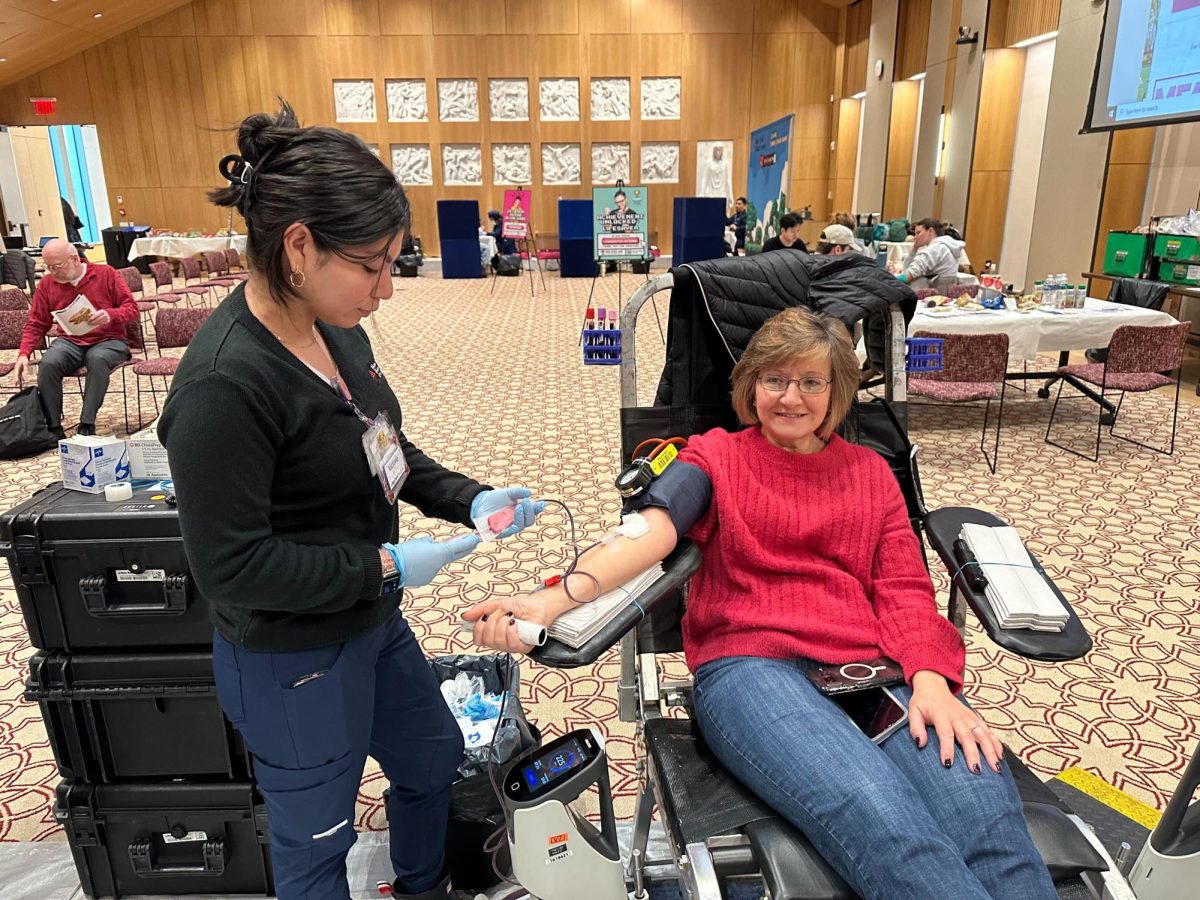Following the Food and Drug Administration’s (FDA) updated guidelines removing restrictions that barred blood donations based on sexual orientation, queer Fordham students weighed in on the policy change and shared their intention to donate blood at the upcoming Lincoln Center blood drive on Feb. 12 in the Bateman Room on the second floor of the law school.
The university also hosted a blood drive at the Rose Hill campus on Jan. 30 in the Joseph M. McShane, S.J.’s Great Hall located on the third floor. University Health Services urged members of the Fordham community to donate in a university-wide email sent on Jan. 18, citing a “great need for blood donations.”
On May 11, 2023, the FDA announced that they will no longer prohibit men who have sex with men (MSM) from donating blood. Instead, the screening questionnaire will ask risk-based questions that do not target sexual identity.
Per the FDA’s regulations, MSM were initially banned from donating blood starting in 1985 due to fear of spreading HIV/AIDS during the AIDS crisis in the 1980s to the early 1990s. Throughout the AIDS crisis, queer individuals — particularly gay men — experienced a new height of stigmatization that perpetuated gay and queer sexuality as the cause for the spread of the disease.
“The rules needed to change with the times. HIV is spread through certain sexual acts, not depending on who these people are, what their gender is, or how they identify.”Jason Maina, FCLC ’24
According to the Centers for Disease Control and Prevention (CDC), HIV/AIDS spreads through the transmission of bodily fluids, including blood as well as rectal or vaginal fluids. While the CDC notes that the majority of HIV diagnoses are due to unprotected sexual intercourse or the sharing of drug injection equipment, past regulations on donating blood have specifically targeted gay men on the basis of sexual identity.
In 2015, the FDA lifted the lifetime ban to allow men who have sex with men to donate blood if they abstain from sexual intercourse for at least one year. In 2020, the abstinence period was shortened to 90 days.
Under the past FDA regulations, Jason Maina, Fordham College at Lincoln Center (FCLC) ’24, would be restricted from donating his blood. Maina said he believes that the former policy is “blatant discrimination.”
Similarly, Nate Dallimore, FCLC ’24, who would have also been ineligible to donate blood before the regulation changes, speculated that the regulations came from hysteria following the AIDS epidemic.
“It’s restricting an entire group of people from donating blood, when donated blood is incredibly important, solely based on their sexuality because of the fear their blood is contaminated,” Dallimore said.
Maina and Dallimore both mentioned their intentions to donate blood at the upcoming blood drive located in the law school.
Access to information for queer people has greatly decreased the spread of HIV, noted Maina, which leads him to believe that blood donation guidelines required revisions.
“The rules needed to change with the times,” he continued. “HIV is spread through certain sexual acts, not depending on who these people are, what their gender is, or how they identify.”
“Modernizing the eligibility guidelines will expand the pool of eligible donors and has the potential to increase the blood supply and, in turn, help respond to blood shortages.”The Human Rights Campaign
According to the American Red Cross, donors will be questioned on specific behaviors, not their identity or the identity of their sexual partners.
Current FDA regulations still exercise some level of restriction on who can and cannot donate blood with concerns to HIV/AIDS transmission. Potential donors who have participated in intravenous drug use, had anal sexual intercourse with a new sexual partner, have had anal sexual intercourse with more than one person, or had sexual intercourse in exchange for money or drugs in the last three months will not be allowed to donate blood.
Under the new regulations, those taking HIV/AIDS preventative or treatment medication will be deferred from donating blood. According to the FDA, these medications could delay the detection of HIV/AIDS and cause false negative results.
Peter Marks, director of the FDA’s center for Biologics Evaluation and Research, noted the importance of altering the previous regulations in a news release announcing the changes to blood donation eligibility.
“The implementation of these recommendations will represent a significant milestone for the agency and the LGBTQI+ community,” he said.
The Human Rights Campaign echoed the importance of allowing LGBTQ+ donors due to the great need for donated blood on their website.
“Modernizing the eligibility guidelines will expand the pool of eligible donors and has the potential to increase the blood supply and, in turn, help respond to blood shortages.”




Keith Wilson • Feb 8, 2024 at 9:14 am
False information. Blood donations were NEVER deferred based on “sexual orientation.” This is the biggest lie promoted.
The questionnaire always focused on high-risk BEHAVIOR, as it does now. It never asked the donor what his sexual orientation was. Ever.